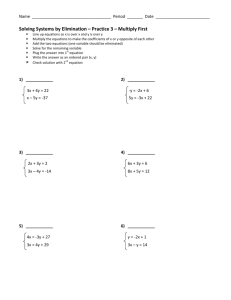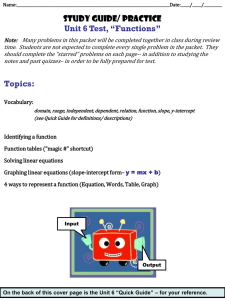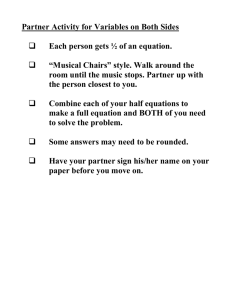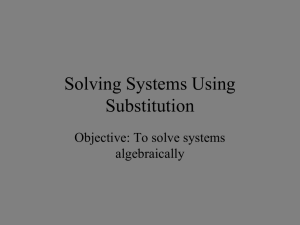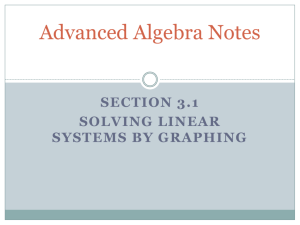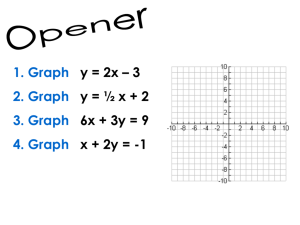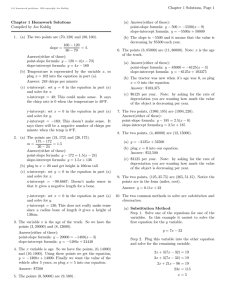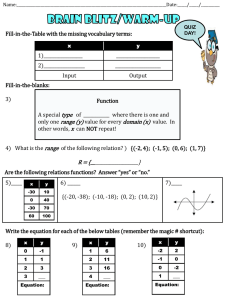Examples from your Text: Page 212 # 30) This one couldn't be
advertisement
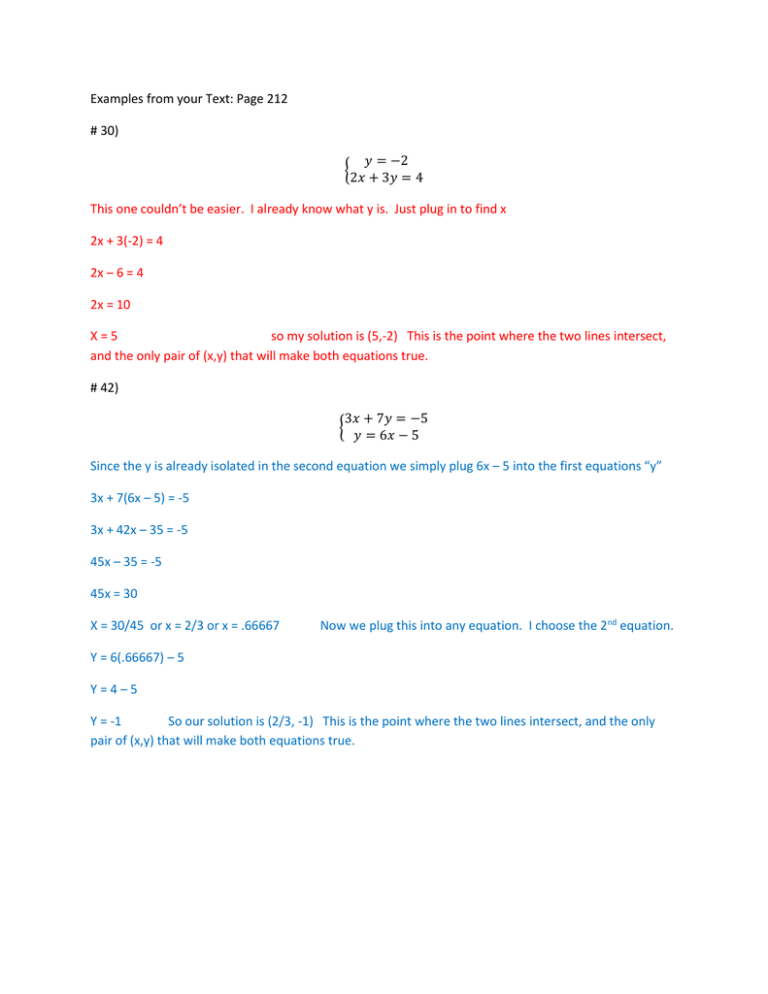
Examples from your Text: Page 212
# 30)
𝑦 = −2
{
2𝑥 + 3𝑦 = 4
This one couldn’t be easier. I already know what y is. Just plug in to find x
2x + 3(-2) = 4
2x – 6 = 4
2x = 10
X=5
so my solution is (5,-2) This is the point where the two lines intersect,
and the only pair of (x,y) that will make both equations true.
# 42)
{
3𝑥 + 7𝑦 = −5
𝑦 = 6𝑥 − 5
Since the y is already isolated in the second equation we simply plug 6x – 5 into the first equations “y”
3x + 7(6x – 5) = -5
3x + 42x – 35 = -5
45x – 35 = -5
45x = 30
X = 30/45 or x = 2/3 or x = .66667
Now we plug this into any equation. I choose the 2 nd equation.
Y = 6(.66667) – 5
Y=4–5
Y = -1
So our solution is (2/3, -1) This is the point where the two lines intersect, and the only
pair of (x,y) that will make both equations true.
6𝑥 + 2𝑦 = 7
# 54) {
𝑦 = −3𝑥 + 2
Plug -3x + 2 into the y in the first equation
6x + 2(-3x + 2) = 7
6x -6x + 4 = 7
4=7
SPECIAL CASE: This can’t be true! This system is called INCONSISTENT! What that means is that there is
no solution, in other words there is no x and y we can choose that will work for both equations. Visually
it means that the lines never touch (parallel).
3𝑥 − 12𝑦 = −24
# 56) {
−𝑥 + 4𝑦 = 8
Since no variable is isolated we will do it ourselves. I choose to isolate the x in equation 2 (because it
looks easiest to do)
EQ2: -x + 4y = 8
-x = -4y + 8
x = 4y – 8
Now I will replace the x in equation one with 4y – 8
3(4y – 8) -12y = -24
12y -24 – 12y = -24
-24 = -24
SPECIAL CASE: This is always true. These are the same line! So how do we express it? Your solution will
be written like it’s a point, kinda.
Start out with (x, …)
This indicates x could be anything…but once we pick x, what is y. Look at equation 2 again..
-x + 4y = 8 Lets find the y
4y = x + 8
y = .25x + 2
So our solution is (x, .25x + 2)
This describes all the possible points where the lines touch.
